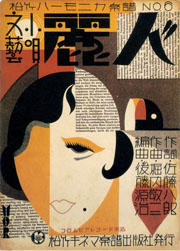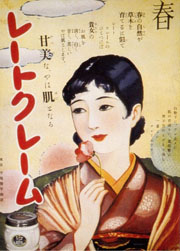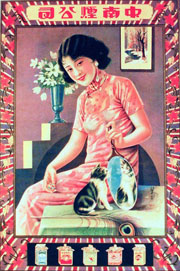Qianshen Bai | The Prices of Antiques in the late Qing Market
[Abstract | Paper]
Email: qbai@bu.edu
Qianshen Bai is an Associate Professor in the Department of Art History at Boston University. He specializes in the history of Chinese calligraphy, painting and seal carving. His most recent publication is Fu Shan’s World: The Transformation of Chinese Calligraphy in the Seventeenth Century (2003). He is currently working on a monograph on the 19th-century Chinese artist Wu Dacheng.
David Eckel | Discussant
Email: mdeckel@bu.edu
David Eckel is a Professor at the Department of Religion at Boston University and Director of the Core Curriculum. He received his B.A., M.A at Oxford; Ph.D. at Harvard. His publications include Bhaviveka and His Buddhist Opponents; To See the Buddha: A Philosopher’s Quest for the Meaning of Emptiness; Buddhism; and Jnanagarbha’s Commentary on the Distinction Between the Two Truths. He is editor of India and The West: The Problem of Understanding and Deliver Us from Evil. He served as Distinguished Teaching Professor of the Humanities from 2002-2005 and won a Metcalf Award for Teaching Excellence in 1998
Suk-Young Kim | Building Leisure out of National Trauma: Tourism and Consumption along the Korean Demilitarized Zone
[Abstract | Paper]
Email: skim@theaterdance.ucsb.edu
Suk-Young Kim is Associate Professor of Theatre at the University of California at Santa Barbara. She is the author of Illusive Utopia: Theater, Film, and Everyday Performance in North Korea (Ann Arbor: University of Michigan Press, 2010), which explores how the state produced propaganda performances intersect with everyday life practice in North Korea. She is also a co-author (with Kim Yong) of Long Road Home: A Testimony of a North Korean Camp Survivor (Columbia University Press, 2009). Her current book projects include DMZ Crossing: Performing Emotional Citizenship Along the Korean Border and Performing Folklore: Syncretism in Nikolai Gogol’s Ukrainian Stories.<
Yu-Chih Lai 賴毓芝 | Money, Networking, and Leisure: Selling Japanese Books in Shanghai, 1880-1911
[Abstract | Paper]
Email: yclai@gate.sinica.edu.tw
Yu-Chih Lai received her Ph.D. in art history at Yale University in 2005. She has been Assistant Research Fellow at the Institute of Modern History, Academia Sinica, Taiwan, since July 2010. She previously worked as an assistant curator in the Department of Painting and Calligraphy at the National Palace Museum for seven years, participating in several important exhibitions. The catalogue she co-wrote and co-edited in conjunction with the special exhibition “Tracing the Che School in Chinese Painting,” with its perspective on cultural interactions in East Asia, remains the most comprehensive and in-depth study of Zhe-school paintings in the collection of the National Palace Museum in Taipei. Given the persistent interest in inter-cultural dynamics, her publications have ranged from a study on the paintings of Lady Wenji in the 12th century to Zhe school paintings from the 15th to 17th century and the visual and material exchanges between the Qing court and Europe in the 18th century, including her dissertation’s focus on Japanese involvement in Shanghai school paintings and sequentially the establishment of “Modern Chinese Art.” Her current book projects include Visual Empire: Image Productions, Governance, and Empire-Building in the Qianlong Court and Moments of Change: Japan in Modern Chinese Painting.
Tim Oakes | Tourism and Consumer Citizenship in Contemporary China
[Abstract | Paper]
Email: toakes@colorado.edu
Tim Oakes is Professor of Geography and Director of the Center for Asian Studies, University of Colorado at Boulder. His is a cultural geographer of China, working on issues related to regional cultural development, culture industries, tourism, heritage, regional and place-based identities. His work focuses on the ways culture is used as a resource for development and governance objectives, identity politics, and tourism. Some of his recent books include Faiths on Display: Religion, Tourism, and the State in China (Rowman & Littlefield, 2010) and The Cultural Geography Reader (Routledge, 2008).
Xavier Paules | The Unexpected End of a Success Story: Opium 1800-1906
[Abstract | Paper]
Email: lingnan99@hotmail.com
Xavier Paulès received his PhD in Modern Chinese History at Lyon 2 University, Lyon, France in 2005. He has been Assistant Professor at École des Hautes Études en Sciences Sociales (Paris) since March 2010. His work has mainly been on Republican period opium, with a special focus on the consumption side. His Ph.D has been published as Histoire d’une drogue en sursis. L’opium à Canton 1906-1936 [A drug in decline. Opium in Canton, 1906-1936] (Paris: éditions de l’EHESS, 2010). His second book came out last year: L’opium, une passion chinoise, 1750-1950 [Opium, a Chinese Passion, 1750-1950] (Paris: Payot, 2011).
Peter Schwartz | Discussant
Email: pjs8@bu.edu
Peter Schwartz teaches courses in German and comparative literature and in film. Most of his work to date centers on Goethe and his age (1749-1832). His special interests include the Enlightenment (as historical event and unfinished process), European neoclassicism and modernism, American, French, Dutch and Japanese literature, early film and photography, the history of New York City, the critical work of the Frankfurt School, and the “science of culture” (Kulturwissenschaft) of the art historian Aby Warburg and his circle. His first book – After Jena: Goethe’s “Elective Affinities” and the End of the Old Regime – was released by Bucknell University Press in 2010, and he is conducting research for a book-length project on Aby Warburg’s response to the First World War.
Nancy Smith-Hefner | Leisure and Consumption in Java’s New Middle Class
[Abstract | Paper]
Email: smhefner@bu.edu
Nancy Smith-Hefner is associate professor and associate chair of the Department of Anthropology at Boston University where she has been teaching since 2001. Her areas of specialization include linguistic anthropology, gender and sexuality, Southeast Asia, youth culture, and Islam. She is the author of Khmer American: Identity and Moral Education in a Diasporic Community (Berkeley: University of California Press, 1999). Among her recent publications are “’Hypersexed Youth and the New Muslim Sexology in Contemporary Java” (Review of Indonesian and Malay Affairs. 2009, 43(1):209-244.); “Women, Language Shift, and Ideologies of Self in Indonesia” (Journal of Linguistic Anthropology. 2009, 19(1):57-77); “Youth Language, Gaul Sociability, and the New Indonesian Middle Class” (Journal of Linguistic Anthropology. 2007, 17(2):184-203); and “Muslim Women and the Veil in Post-Suharto Java” (Journal of Asian Studies. 2007, 66(2):389-420). She is currently working on a book manuscript based on a 12 year study of Javanese Muslim youth in the south-central Javanese city of Yogyakarta, tentatively entitled New Muslim Youth: Gender, Sexuality and Islam in Post-Suharto Java.
J. Keith Vincent | Discussant
Email: jkvincent@me.com
J. Keith Vincent has published widely on modern Japanese literature both in Japanese and English, with a focus on the relation between literary form and issues of gender and sexuality. He was instrumental in introducing and translating gay and lesbian studies to a Japanese audience in the 1990s and has striven since then to create a dialogue between Japanese queer scholarship and U.S. queer theory. His book, Two-Timing Modernity: Homosocial Narrative in Modern Japanese Fiction (Harvard Asia Center, Fall 2012) argues that for much of the twentieth century in Japan, male-male sexuality was no longer a recognizable literary trope and not yet a source of identity, but an early stage of a narrative of sexual maturation often imagined to parallel modern Japan’s own emergence from a “barbarous” and “perverse” past. His translation of Okamoto Kanoko’s A Riot of Goldfish (Hesperus 2010) won the 2011 U.S. Japan Friendship Commission Prize for the Translation of Japanese Literature and he was also part of the team that translated Natsume Soseki’s Theory of Literature(Columbia UP 2009). More recently he has developed an interest in contemporary Japanese media theory, co-translating the Lacanian critic Saito Tamaki’s groundbreaking study, Beautiful Fighting Girl (Minnesota, 2011). He is currently at work on two new projects: an edited volume of essays on gender and sexuality in the work of Natsume Soseki (some newly commissioned and some classic essays translated from Japanese) and a book on the genre of shaseibun in the early twentieth century, tentatively titled Haiku in Prose: Shaseibun and the Abortive Beginnings of Japanese Realism. Most recently, he has developed an interest in the field of cognitive narratology and its relation to both queer theory and Japanese literary studies.
Rudolf Wagner | On the Cleanliness of Money. The Public Posture of the Shenbao Publishing House in Shanghai, 1872-1890
[Abstract | Paper]
Email: wagner@asia-europe.uni-heidelberg.de
Rudolf Wagner is a Senior Professor Chinese Studies at Heidelberg University in Germany and a co-director of the Cluster of Excellence: Asia and Europe in a Global Context: Shifting Asymmetries in Cultural Flows. He is an intellectual historian with a strong interest in the political implications of philosophical and literary works as well as the transcultural interaction between China and the world in areas such as key concepts, political symbols, and institutions. Among his publications is a three-volume edition and analysis of the 3rd cent. C.E. philosopher Wang Bi, a study on the religion of the Taiping upheaval (Reenacting the Heavenly Vision: the Role of Religion in the Taiping Rebellion), a study of the politics of the historical drama in the PRC (The contemporary Chinese Historical Drama), and another on the politics of PRC literature (Inside a Service Trade). A recent study is “China ‘Asleep’ and ‘Awakening.’ A Study in Conceptualizing Asymmetry and Coping with It” in Transcultural Studies 1(2011) 1-136. He is the recipient of the highest German scholarly award (Leibniz Award).
Eugene Wang | The Worker-and-Peasant Duo as Currency of Images: Socialist Subjectivity and Post-Socialist Mediality
[Abstract | Paper]
Email: eywang@fas.harvard.edu
Eugene Wang is Abby Aldrich Rockefeller Professor of Asian Art at Harvard University. His book, Shaping the Lotus Sutra: Buddhist Visual Culture in Medieval China (2005), received academic achievement award from Japan in 2006. He is the art history associate editor of the Encyclopedia of Buddhism, ed. Robert Buswell, Jr. (New York: Macmillan, 2004). He serves on the editorial board of The Art Bulletin and the advisory board of the Center for Advanced Studies for Visual Art at the National Gallery of Art in Washington, DC. His extensive publications encompass a wide range of subjects, including ancient Chinese bronzes, tombs, sarcophagi, cave murals, reliquaries, landscapes, scroll paintings, calligraphy, woodblock prints, photography, and films, etc. They have appeared in Artforum, Art History, Art Bulletin, Critical Inquiry, Public Culture, RES: Anthropology and Aesthetics, and Wide Angle. The film for which he wrote the script was screened at the Ninth Hawaii International Film Festival. He also translated Roland Barthes’ Fragments d’un discours amoureux into Chinese. He has also written for and curated exhibitions on contemporary Chinese art, including “Seeing Utopia: Visions of Contemporary Chinese Urbanscape” at Harvard. His current book projects include The First Emperor’s Last Breath, which explores the shifting boundaries of interiority/exteriority in ancient Chinese conceptions of body and cosmos, and Shades of Ink: Seven Stories of Chinese Painting.
Robert Weller | Ritual, Play, and the Frames of Empathy
[Abstract | Paper]
Email: rpweller@bu.edu
Robert Weller is Professor and Chair in the Anthropology Department at Boston University. His areas of specialization are Chinese religion and ritual, social and political change, environment, and anthropological theory. His most recent books are Discovering Nature: Globalization and Environmental Culture in China and Taiwan (2006) and Alternate Civilities: Democracy and Culture in China and Taiwan (1998). Professor Weller is currently researching the relations between religion and civil life among Chinese communities in Malaysia, China, and Taiwan.
Merry White | The Price of Perfection in the Japanese Café
[Abstract | Paper]
Email: corky@bu.edu
Merry White received her degrees (A.B., A.M., and PhD) from Harvard University in Anthropology (East Asian), Comparative Literature (English, French and Italian), and Sociology (Japan). She was Director of the Project on Human Potential at the Harvard Graduate School of Education from 1980 – 1986, a multinational study of learning with case studies in Japan, India, the People’s Republic of China, Egypt, West Africa and Mexico. From 1976 – 1987 she was administrator of the East Asian Studies undergraduate program at Harvard College. In 1987 she began teaching at Boston University and received tenure in 1989. Her publications include: Perfectly Japanese: Making Family in an Era of Upheaval (University of California Press, 2002); The Material Child: Coming of Age in Japan and America (Free Press, 1993; Dobunshoin, 1993; University of California Press, 1994); Comparing Cultures (with Sylvan Barnet, Bedford Books, 1995); The Japanese Educational Challenge, (Free Press, 1986, Princeton University Press 1992, and Shueisha, 1992); and The Japanese Overseas(Free Press, 1988). In addition she has published two cookbooks: Cooking for Crowds (Basic Books, 1973) and Noodles Galore (Basic Books 1976) as well as many articles on food and travel. Her new book, Coffee Life in Japan, published by the University of California Press in April 2012, is a study of coffee and urban public spaces in Japan with a focus on the café. She is currently preparing a book for Oxford University Press on the world history of food. Her next study will be on food and work in Japan.
Ellen Widmer | Discussant
Email: ewidmer@wellesley.edu
Ellen Widmer is the Mayling Soong Professor of Chinese Studies and Chair of the Department of East Asian Languages and Literatures at Wellesley College. Her research fields include Chinese women’s literature of the Ming and Qing dynasties, history of the book, missionary history, and traditional Chinese fiction and drama. She is the author of two monographs, The Margins of Utopia: Shui-hu hou-chuan and the Literature of Ming Loyalism, 1987 and The Beauty and the Book: Women and Fiction in Nineteenth Century China, 2006. Her edited volumes include Writing Women in Late Imperial China (with Kang-i Sun Chang), 1997; Trauma and Transcendence in Early Qing Literature (with Wilt Idema and Wai-yee Li), 2006; China’s Christian Colleges: Cross-Cultural Connections (with Daniel Bays), 2008; and The Inner Chambers and Beyond: Women Writers from Ming to Qing (with Grace Fong), 2010. Her research is primarily in the areas of women, publishing, and fiction of the Ming and Qing.
Catherine Yeh | Private Mansion as Public Stage: Money and Stardom
[Abstract | Paper]
Email: yeh@bu.edu
Catherine Yeh is an Associate Professor of Chinese and the head of the Chinese Language and Literature section in the Department of Modern Languages and Comparative Literature at Boston University. Her research interest is in the twentieth-century Chinese entertainment culture and literature, in particular the relationship between entertainment and the transformation of society as a whole. She has published widely on the subject, and her most recent book publication is Shanghai Love: Courtesans, Intellectuals and Entertainment Culture, 1850-1910 (2006). A monograph entitled A Literary Fashion Goes Global: The Political Novel in Late Qing China is forthcoming. She is currently in the finishing stages of a project with the working title: “From Male ‘Flower’ to National Star: Media, International Politics, and the Transformation of Patronage Culture in the Rise of the Peking Opera Female Impersonator.”



